Goodbye, Nicholas Tse.
01
Why does Hong Kong always shoot police films?
Even so, the Xingang film that can still be named now is already one less.
The newly released "Anger Serious Case", some people commented that it may be the most bombed Hong Kong film this year. Indeed, it is inevitable to see Nicholas Tse, who has been a chef for seven years, return for the first time.
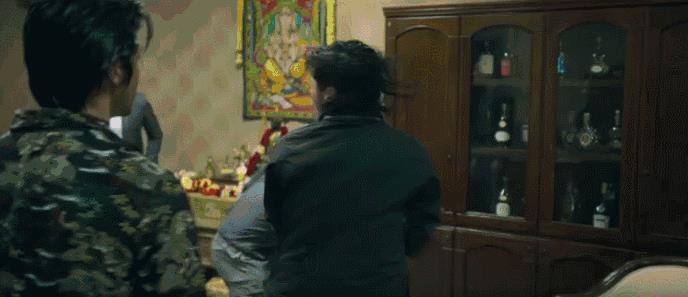
However, firearms, gunpowder, fighting … As director Chen Musheng’s legacy, the full screen of flesh and blood is still trying to cover up the thinness of the drama.
The repeated questioning of justice and the stubborn resistance to evil in the film once again prove that Hong Kong movies are powerless?
It seems that this set of questions should not be answered by us.

I remember there was a scene in king of comedy where Stephen Chow shouted to the sea: Work hard, struggle!
This is Stephen Chow’s interpretation of life and a footnote to the fate of Hong Kong films.
Perhaps, with them, it is the golden age of Hong Kong.

02
Speaking of the golden age of Hong Kong movies, the story has to start with Shaw, Jiahe and their struggle for hegemony.
The early Hong Kong films were dominated by Shaw. Shaw’s family has a great career, and its stars are numerous. Actors and directors are Shaw’s employees, and they live on their salaries. Therefore, the cost of filming is extremely low, and with the vertical monopoly of the industry, the studios and cinemas are grabbing it. Just take a picture, with this port as the base, and sell it in other places, the days will be more fragrant.
Li Hanxiang spent all day complaining about Shao Yifu, the boss, being stingy. Later, he really went to Taiwan Province to set up another door. However, Shaw’s bad news has just begun: Zou Wenhuai followed in Li Hanxiang’s footsteps and announced its separation from Shaw. Losing two generals, Shaw was badly hurt.
Zou Wenhuai took a group of valiant soldiers from Shaw, established Jiahe, and poached Wang Yu from Shaw to remake Shaw’s masterpiece One-armed Knife. Therefore, when Zou’s "Blind Man vs One-armed Knife" was released, Shao personally went out and accused Jiahe of copyright infringement. The two men went to court and the enter the dragon, which had a far-reaching influence on the Hong Kong film industry for decades, kicked off.
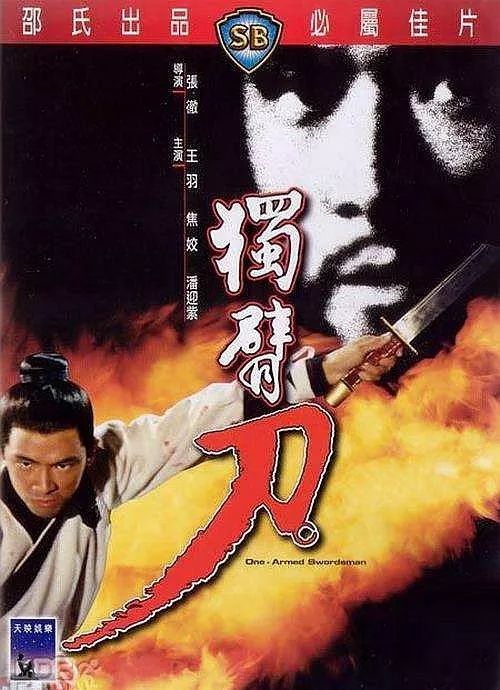
One-armed knife
In 1970, Bruce Lee in the United States revealed his intention to return to Hong Kong for development. Knowing that Shaw and Bruce Lee had broken up, Zou Wenhuai went to the United States to visit Bruce Lee face to face, and promised to pay him $7,500 per film to meet his demands as much as possible.
Bruce Lee was moved by Zou’s sincerity and verbally promised to make two films for Jiahe.
In the second year, Bruce Lee went to Thailand to shoot "Big Brother in Tangshan" invested by Golden Harvest. Three months later, the film was released, setting a record for the highest box office in Hong Kong’s local port, which triggered a sensation effect in Hong Kong and the whole Southeast Asia. The fighting scene displayed by Bruce Lee on the screen was completely different from the previous kung fu films, with unprecedented fierce and wonderful actions, which made the audience fascinated and set off a frenzy of watching movies in Hong Kong.
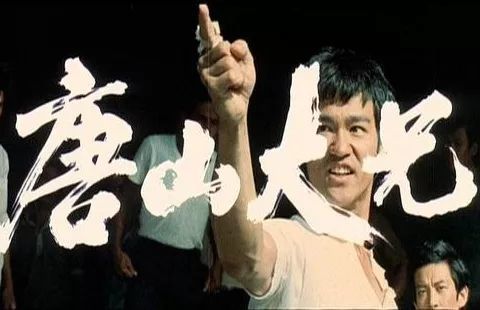
Only five months later, Bruce Lee made Jingwumen, which combined his kung fu charm with national sentiment, making the film a great success. It only grossed HK$ 4.5 million in Hong Kong, broke the local box office maintained by Tangshan Big Brother, and even opened the international market, and Golden Harvest also made a lot of money with these two films.
In the same year, Bruce Lee and Zou Wenhuai jointly established a company, and the first and only work of the company: The Raptors Crossing the River, directed and performed by Bruce Lee, was released on the eve of New Year’s Day that year. The interest of Hong Kong audiences even exceeded the celebration of New Year’s Day, and they rushed into the cinema to see the dragon’s elegant demeanor, and the scene was packed.
On July 20th, 1973, Bruce Lee died suddenly at his home in Ding Pei, and a generation of superstars fell.
03
One year after Bruce Lee’s death, Run Run Shaw failed to know people, and gave another box office superstar to Zou Wenhuai, and Golden Harvest flourished again.
The movie star who defected to Jiahe is Xu Guanwen, a "cold-faced comedian" owned by Shaw. In 1974, Xu Guanwen’s "Ghost Horse and Double Star" for Jiahe was released, and the box office of our port even surpassed that of Bruce Lee.
Xu Shi’s comedies have revived the lingering Cantonese films, and the situation of Golden Harvest and Shaw’s dominating Hong Kong films has taken shape.
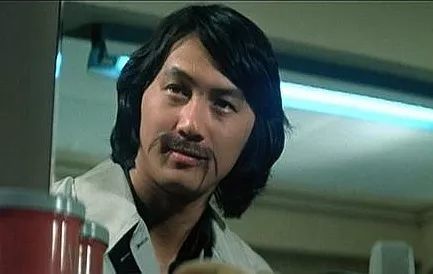
< Xu Guanwen starred in "Half a catty" >
In order to deal with Jiahe, Run Run Run Shaw recruited the frustrated Li Hanxiang. At this time, Shao’s talents are numerous, and there are countless masterpieces: Li Hanxiang’s romantic films, Zhang Che’s kung fu films, Chu Yuan’s martial arts films, and a number of popular stars guarantee its box office.
It is Sammo Hung and Jackie Chan, two brothers and sisters, who really make Jiahe quickly become an internationally renowned film company and have a great influence on its future development.
In fact, as early as Bruce Lee’s time, Jackie Chan began to work for Jiahe, which is now called a walk-on.
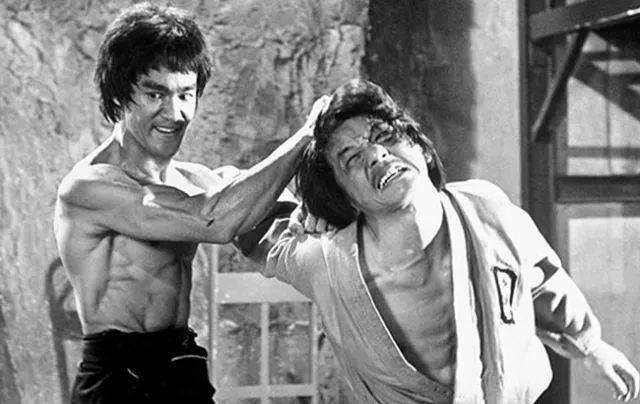
"Jackie Chan as body double in Bruce Lee’s film"
In the 1980s, Shaw’s film industry has lost its scenery, its studio system is aging, its creation is conservative and its quality is declining. Only Jing Wong’s modern comedies can shake Jiahe and Xinyi City.
By the 1990s, Hong Kong film companies were competing for hegemony, and Hong Kong was once the second largest film producer in the world after Hollywood.
At this time, Shao Yifu, who was far-sighted, turned his energy to the development of "wireless" television, and he became a leader in Hong Kong’s television industry and attracted much attention.
In 1998, the Busan Road Studio in Jiahe was taken back by the Hong Kong government. In the same year, the government allocated another piece of land to build a cinema, and the various bidding qualifications listed clearly indicated that only Jiahe met the requirements.
What Zou Wenhuai did not expect was that Shaw joined forces with six companies, including China Star and Huanya, to bid successfully. Since then, Jiahe No.2 has died, and the company has been caught in a storm of equity competition, and its entry into the mainland market has been frustrated.
In 2007, Zou Wenhuai announced his retirement, and his shares were sold to Orange Sky, announcing the end of Hong Kong’s largest film company.
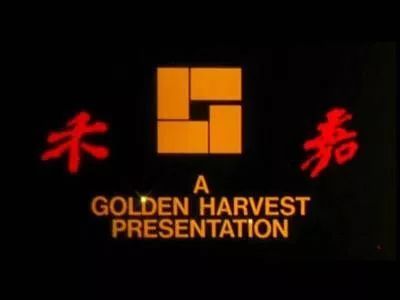
Later, Jing Wong blew himself up in an interview: "In those days, six companies jointly bid against Jiahe World War I, which was my game. I was a strategist in this campaign."
Jiahe vs Shaw has been fighting for hegemony for decades, and it has been ups and downs with the waves. Times have changed, and Jing Wong’s revelations have also settled a Jianghu case-solving.
04
In 1988, the number of films released in Hong Kong has surged to more than 100. The "golden age" for Hong Kong filmmakers to make money has begun.
At that time, the "Liu Thirteen" and "Zheng Nine Groups" were widely circulated, which meant that Andy Lau made 13 films a year, while Zheng Yuling made films across nine crews at the same time. In fact, in those days, even behind-the-scenes photography, martial arts, lighting and props were all in three or four groups, and everyone wanted to make a fortune before 1997.
In its heyday, Wong Kar-wai put on an all-star cast, tricked Taiwan Province filmmakers into making a film "ashes of time", which was incomprehensible to the audience, and the box office flopped.
In order to make up for the commercial loss of ashes of time, Liu Zhenwei, a good friend, found the original crew to concoct a movie "East into West", which really sold like hot cakes. Therefore, "finding Wong Kar-wai with an award and finding Liu Zhenwei with money" has become a mockery in Hong Kong film circles.

< Behind-the-scenes photo of ashes of time actors >
But before the year of reunification, Hong Kong films have already suffered the consequences. Overproduction, rampant piracy, Taiwan Province market insecurity, the mainland market is difficult to enter, superstars join Hollywood, while Hollywood blockbusters are menacing, and the box office of their own movies falls again and again.
In 1993, a western film called Jurassic Park set a box office of 60 million in Hong Kong, breaking the box office myth of previous Hong Kong films. Only then did Hong Kong people know that Hollywood made movies like this.
By the mid-1990s, Hong Kong films had fallen into a trough, companies closed down one after another, and the number of film employees was greatly reduced.
In 1996, Jing Wong, Wen Juan and Liu Weiqiang made a series of "Young and Dangerous" based on Jiahe, and released three films in one year at the speed of Hong Kong, with an average box office of 20 million, which brought some vitality to the declining Hong Kong film industry, but it was also a sunset of doom.
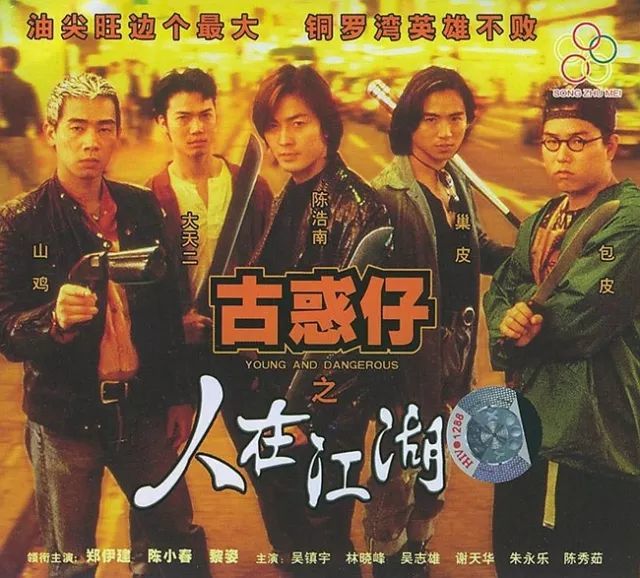
In 1997, Shao Yifu wanted to carry the banner of film again, and invested heavily in remaking Zhang Che’s classic "Ma Yongzhen", hoping to fight his way out in the light market. Unfortunately, it ended miserably and remained silent for several years.
However, a year later, a Hollywood blockbuster invaded again.
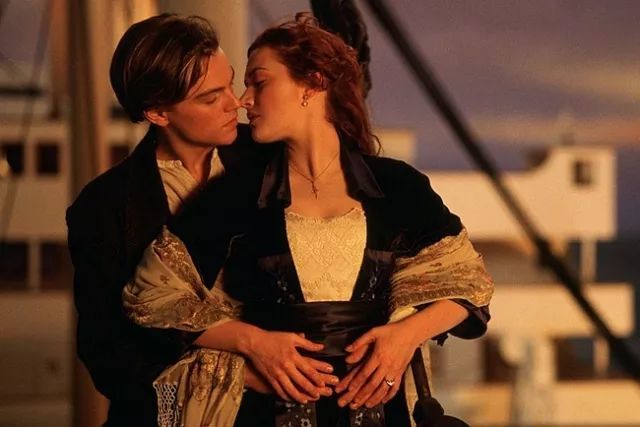
In April 1998, "Titanic" was released in China, which was a sensation, ranging from first-tier cities to towns without cinemas. People were talking about the shock brought by this film, and pirated CDs were also fried to dozens of pieces, and several people lined up to watch each CD in turn.
05
Accompanied by the golden age of Hong Kong movies, it is the golden age of ATV and TVB.
In 1983, The Legend of the Condor Heroes was a hit, with Felix Wong Yat Wa, Michael Miu and Barbara Yung of Hua Dan as the leading characters, while Stephen Chow was just a Song Bingyi, Bobby Au—Yeung played two passers-by, and Tony Leung Chiu Wai played a fisherman with only one line. Andy Lau was the worst. He played a bodyguard and didn’t even have lines.
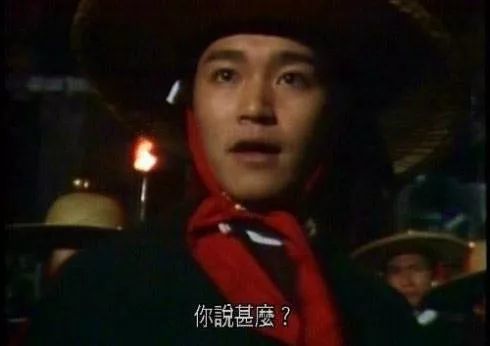
< Stephen Chow plays a Song Bing in The Legend of the Condor Heroes >
In 1982, Andy Lau graduated from TVB art training class with straight A’s, made Falcon and became popular.
This year, Tony Leung Chiu Wai was admitted to wireless under the introduction of his friend Stephen Chow, and played the younger brother of Andy Lau’s girlfriend in Falcon, and there were several scenes; In "The Prodigal Son of Xiangcheng", he plays Tang Zhenye’s younger brother, and there are not many scenes.
In September 1983, Wireless held a variety show. In the program, Michael Miu, Felix Wong Yat Wa, Tang Zhenye, Tony Leung Chiu Wai and Andy Lau formed the "Five Tigers" to perform acrobatics. At that time, Andy Lau’s performance project was to break a big stone in his chest.
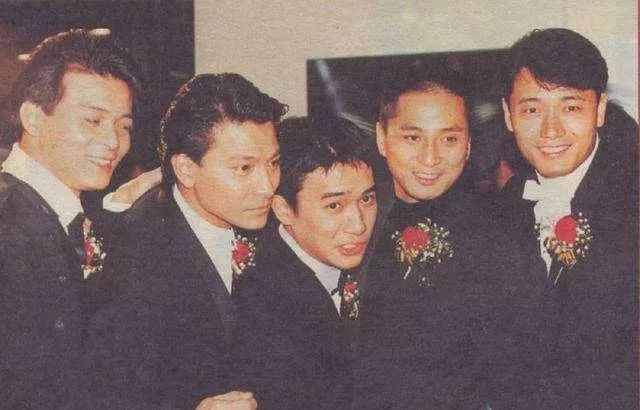
"wireless five tigers"
In order to add to the stunt of the link, TVB CEO Shao Yifu called the five "five tigers" and decided to present these five masters. The five tigers era of TVB has begun.
Since then, Andy Lau played Yang Guo in The Condor Heroes, and the little dragon girl was Chen Yulian, a handsome man and a beautiful woman, which caused a sensation at one time. Chen Yulian played the little dragon girl, and later Jin Yong said that this is the best little dragon girl in his mind.
Tony Leung Chiu Wai finally waited until The Duke Of Mount Deer starred with Andy Lau. Tony Leung Chiu Wai, with a melancholy temperament, became popular because of Wei Xiaobao, an eccentric character. When he walked in the street, people shouted: Look, Wei Xiaobao.
Among the Five Tigers, Andy Lau was the first to fall out with Wireless. After he refused to sign the contract, he went to Wong Kar-wai to make a film that was later regarded as the masterpiece of Hong Kong’s new wave film, called as tears go by.
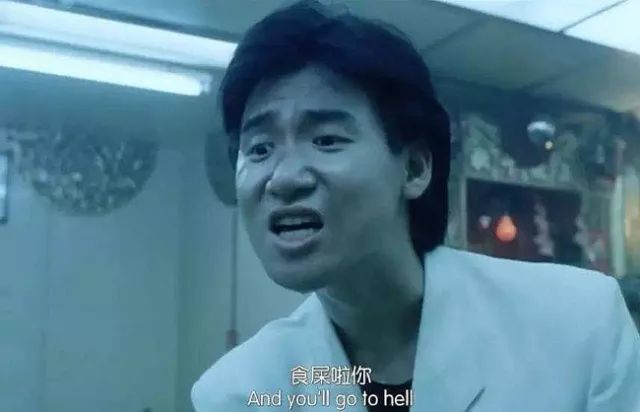
As tears go by.
Some time ago, a group photo of Louis Koo, Hawick Lau, Ku Kui Kei and Wu Jiale was circulated on the Internet, causing a memory killing.
These four people, together with the absent Yuen Hang Ho, were once promoted as the "New Five Tigers of Wireless" in the 1990s. Unfortunately, the final result was far from the ideal effect. Who can remember Wu Jiale and Yuen Hang Ho now?
06
At 0: 00 on April 1, 2016, the blue screen of Hong Kong ATV was cut to three minutes, and the program stopped broadcasting, and the death of the first TV station in Hong Kong was pronounced.
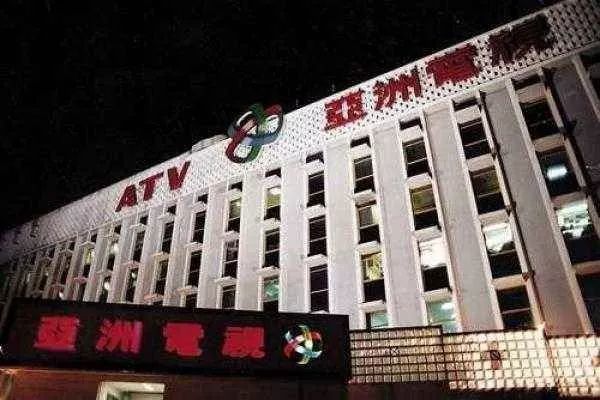
ATV, like Leslie Cheung, chose April 1st. ATV, which once accompanied Hong Kong people to grow up, went bankrupt, ending its 59-year history.
The local people in Hong Kong are not called ATV, but local Hong Kong and Taiwan. At that time, they didn’t know that Hunan Taiwan was called Mango Taiwan. The eighties and nineties were the heyday of Hong Kong and Taiwan, and even TVB was slightly inferior to it.
Huo Yuanjia the Hero in 1981 is one of the classics of ATV.
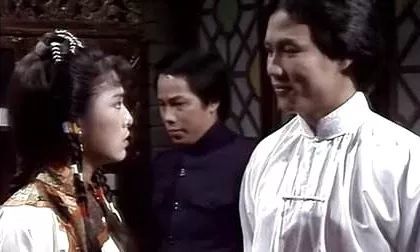
Huo Yuanjia the Great Hero
As the first Hong Kong TV series to be broadcast in the Mainland, Huo Yuanjia, the Hero, triggered a ratings boom, and the theme song great wall never pour made hundreds of millions of people excited.
No one expected that Yuen San Wong, who was popular in China with Huo Yuanjia, later broke into an empty net. A reporter went to Shaolin Temple to interview him: "Master, do you still have troubles?" He replied, "Of course, I am a mortal."
In 1995, ATV also hired Ching-Ying Lam to star in the TV series "The Zombie Master" with a high salary of one million yuan, and Ching-Ying Lam started his TV career, which was also regarded as the resurrection of Ching-Ying Lam’s film career.
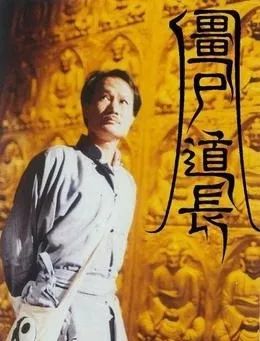
But two years later, on November 8th, Ching-Ying Lam, the "zombie nemesis", died of cancer at an early age.
Now, ATV is dead, but Hong Kong people seem indifferent.
Its old rival, TVB, is no longer prosperous, and Hua Dan, who used to be the master, has rushed to the mainland for gold, and there is no pillar at home.
Hong Kong’s "Cheng Bao" published a social commentary saying that the suspension of ATV has no impact on most Hong Kong people.
Because they no longer watch ATV, Nick Cheung recalled his days at ATV and said, "At that time, he kept shooting and shooting, but no one watched."
In fact, some dramas that Nick Cheung shot at ATV can still be regarded as ATV classics, such as Winner is King, which is the first of its kind in Hong Kong. For example, Silver Fox subverts the traditional way of creation.
Some media said that the transformation of ATV in the past ten years is the epitome of Hong Kong’s film and television culture industry, and that not only ATV, but also the whole Hong Kong film and television culture industry is declining.
07
Once, along with the prosperity of Hong Kong’s film and television industry, there was also popular music in Hong Kong.
In this musical world, James J.S.Wong’s position is irreplaceable. Lin xi, who was still a young poet, commented on James J.S.Wong: "Writing words in classical Chinese is like walking a tightrope, which can only be appreciated if you learn five links."
In the early 1980s, Shanghai Beach, starring Chow Yun Fat, was popular in mainland China, and Ye Liyi’s vigorous voice sang the struggles and tenderness in Shanghai. At that time, Hong Kong opera fans in the Mainland could not speak Cantonese, but they could sing "Shanghai Beach".
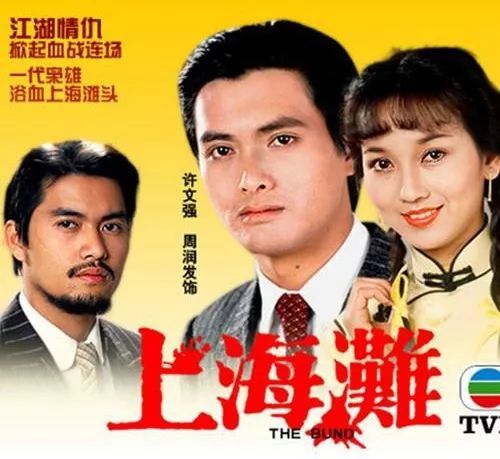
That night, it took James J.S.Wong only 20 minutes to write lyrics for Shanghai Beach. That night, he had diarrhea, and this was the inspiration of "waves rushing, waves flowing". At six o’clock in the morning, James J.S.Wong received feedback from the recording studio: "James J.S.Wong, very good, this song is very good!"
In 1982, the Japanese openly falsified the history of aggression against China in textbooks, which aroused James J.S.Wong’s indignation, so he wrote My China Heart and gave it to Hong Kong singer Zhang Mingmin to sing.
A director of CCTV later overheard this song and was very excited. He brought it to the Spring Festival Evening in 1984, and also created an "ice-breaking trip" for Hongkong and Taiwan Province artists to participate in CCTV Spring Festival Evening.

Hong Kong singer Zhang Mingmin boarded CCTV Spring Festival Evening.
That night, Zhang Mingmin sang "My China Heart" for hundreds of millions of China TV viewers, which instantly captured the hearts of all Chinese compatriots and made a sensation.
In the 1980s, when James J.S.Wong heard that Tsui Hark was going to remake Ghost Story, he immediately looked for it. But James J.S.Wong was too late, and Tsui Hark had found someone else. They didn’t like the songs written by the man Tsui Hark was looking for, so they came to James J.S.Wong again.
In 1988, Ghost Story starring Joey Wong and Leslie Cheung was popular in Southeast Asia, among which the theme song of the movie with the same name, written by James J.S.Wong, a talented singer, was also popular across the Taiwan Straits.
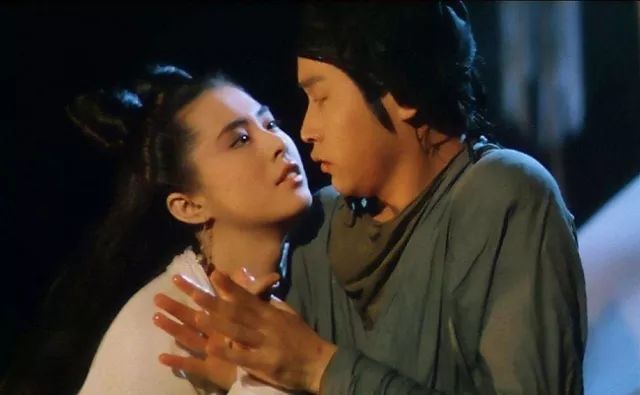
Ghost story
"The road of life/the dream is like a long road/the wind and frost in the road/the wind and frost are dry on the face", Leslie Cheung’s deep and rich voice suddenly brought the audience into that fantasy story.
The following year, Anita Mui’s "Rouge Kou" once again pushed Cantonese movie songs to a climax. Her voice is full of bitterness and vicissitudes, just like the love between a flower and a dozen young people.
A year later, James J.S.Wong wrote lyrics for the theme song of the movie the legendary swordsman. He wrote six drafts, but Tsui Hark was still not satisfied. After writing the seventh draft, namely "A Laugh at the Sea", James J.S.Wong faxed it to Tsui Hark, with a postscript: Do you want love?
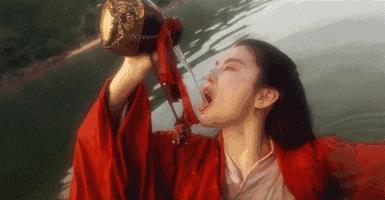
Dong Fangbubai in the Jianghu.
Tsui Hark was ecstatic when he received A Laugh at the Sea, and then finalized it. When the legendary swordsman was shown in Taiwan Province, A Laughter from the Sea was broadcast five times in a row. After the movie, the theater turned into KTV, and the audience sang "The Sea Laughs" in unison.
In 2003, SARS was rampant and people in Hong Kong were in a panic. James J.S.Wong organized a concert with the stars under the Lion Mountain, which sent confidence to the depressed Hong Kong people.
The series "Under the Lion Mountain" began in 1973 and lasted for more than 21 years. The play tells the story of Hong Kong’s bottom-level figures struggling for survival in adversity, which is very inspirational in the context of Hong Kong’s economic downturn.
James J.S.Wong wrote lyrics for the play, and Tam sang, which was well known. "Under the Lion Mountain" is thus known as the "city song" in Hong Kong.
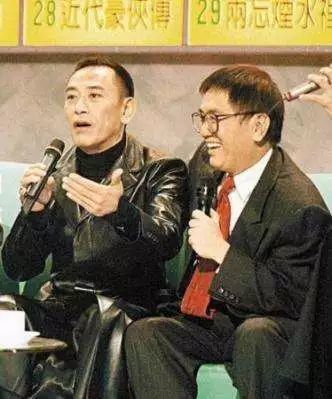
Tam and James J.S.Wong.
Tam also became popular because of Under the Lion Mountain. In 1983, Tam and Jenny Tseng sang the theme song of the TV series Legend of the Condor Heroes, which made him famous again. At that time, James J.S.Wong wrote six songs for the play, including "Hello All the Time in the World".
This version of "The Condor" also features a popular lover, Barbara Yung.
One night, two years after "Shooting Carvings", Barbara Yung, who was only 26 years old, turned on his own gas and sat quietly on the sofa.
Some people say that there is no "Rong Er" in the world after Barbara Yung.
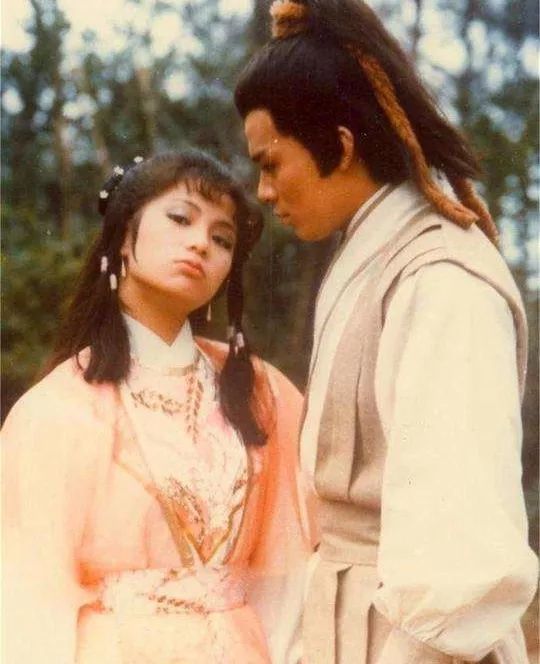
< Legend of the Condor Heroes, 1983 >
Barbara Yung’s favorite singer is Tam. Many years later, James J.S.Wong attended Tam’s funeral. He thought of the song "Family Change" written to Tam that year, and said with sadness: "When things change, things often change, and change is eternal."
Things change. Two years after Tam left, James J.S.Wong also went. After he left, countless netizens mourned: James J.S.Wong left, and the music cried.
08
Some people say that the pop music scene in Hong Kong can be roughly regarded as: in the 1970s, Samuel Hui stood out, while in the 1980s, Zhang Tan competed for hegemony; in the 1990s, it was the era of the Four Heavenly Kings and Faye Wong, spanning the 1980s and 1990s, and it was the flag of Hong Kong rock music, Beyond.
On October 15th, 1988, Beyond gave a concert in Beijing for the first time. Cui Jian met with them in his personal capacity and talked about rock and roll.
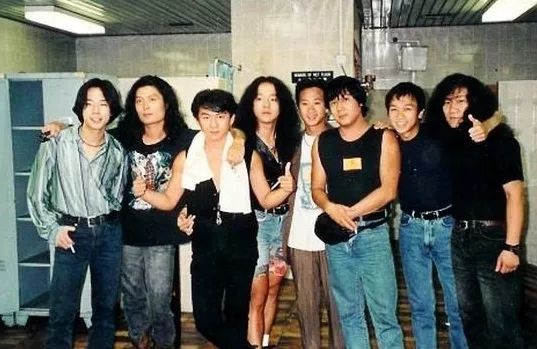
< First Exchange between Hong Kong Rock Music and Mainland Rock Music, 1988 >
Unlike now, at the concert that night, the mainland audience didn’t buy their Cantonese songs. Finally, Ka Kui Wong had to sing "Nothing", which made the audience cry.
Twenty-four years later, Beyond went to Beijing to give a concert, but it was another scene. The audience almost stood and sang. The title song is Ka Kui Wong’s posthumous work "Twenty Years of Anti-Japanese War" to commemorate the 19th anniversary of Ka Kui Wong’s death. The ribs are gone. Twenty years later, this disabled army still stands on the stage and rocks. In the sea of people, it is more or less sad and more sighing.
On the day of Ka Kui Wong’s funeral, thousands of people in Hong Kong saw him off in the streets, and his beloved guitar was buried with him.
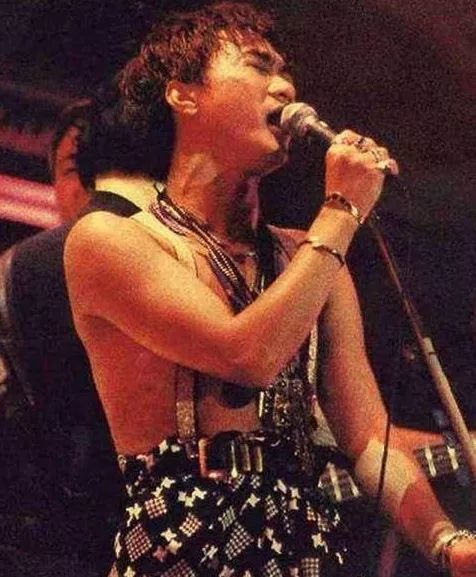
As a die-hard fan of Leslie Cheung, Wang Han revealed that in the era of "Zhang Tan’s hegemony", there were two schools of Zhang Tan in the university dormitory, and he was a clear-cut school, and sometimes he could fight with his roommates because of disagreement on Zhang Tan’s topic.
As a result of Zhang Tan’s hegemony, the two superstars suffered from public opinion. In 1987, Alan Tam announced that Bu would never participate in any music and song competitions again. Leslie Cheung went even further. Two years later, he made a more decisive choice than Alan Tam: he announced that wheat would be sealed and he would never sing again.
In the Spring Festival Evening of 1998, Faye Wong joined hands with Na Ying to sing "Meet 98", which became the last glory of Hong Kong as a leader in Chinese music.
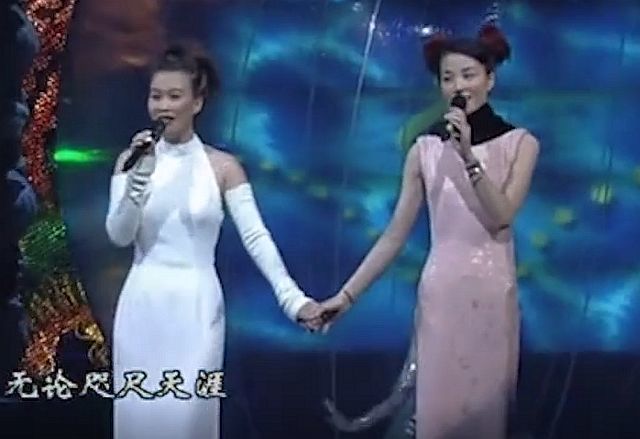
This year, the music scene is still dominated by the four kings.
During the period of the Four Heavenly Kings, the cultural export of Hong Kong pop music to the mainland reached a historical peak, directly creating the "57th nation": groupies.
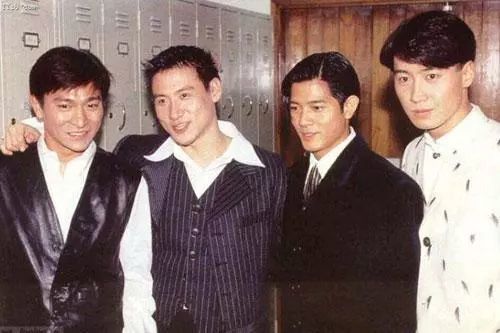
If from 1990, these four people monopolized the award of the most popular male singer at the Golden Melody Awards Ceremony for 11 years, and the annual golden melody was almost divided by Jacky Cheung and Liming.
Hacken Lee, the former "successor to Alan Tam", was 35 years old when he won the award of the most popular male singer in 2002.
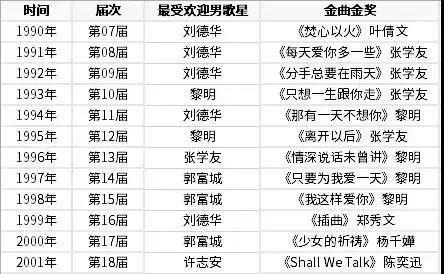
After the era of the Four Kings, the music scene in Hong Kong suddenly turned from prosperity to decline. Mature fans would rather continue to indulge in old songs than buy new ones.
In 1998, Faye Wong first attended the Spring Festival Gala. At that time, on the mainland screen, Faye Wong’s signature was also marked with the word "Hong Kong". Twenty years later, there is no second Faye Wong in Chinese music.
On April Fool’s Day in 2003, Leslie Cheung jumped down from Mandarin Oriental Hotel in Central.
At the memorial party of Leslie Cheung’s death, the four heavenly kings sang the theme song "Love of the Year" of "The True Color of Heroes" on the same stage many years later. Aaron Kwok, who was deeply in love, choked and broke his voice, but no one laughed at him.
At Leslie Cheung’s funeral, Anita Mui almost fainted with grief.
But at the end of this year, Anita Mui also went with Leslie Cheung.
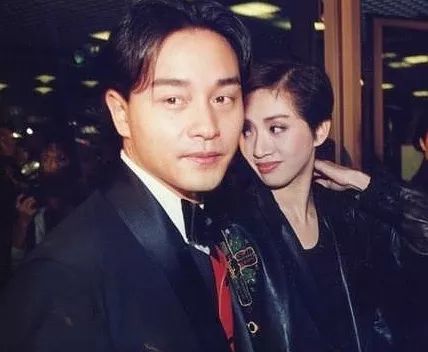
Hong Kong people built a bronze statue of Anita Mui, saying that Anita Mui had gone, and there was no Hong Kong daughter any more.
Anita Mui is a flower blooming in the streets of Hong Kong. Hong Kong people say that only she has the unique flavor of Hong Kong, so she doesn’t have to fall in love with the country, but she must be affectionate and righteous.
After this year, it seems that Hong Kong is no longer that Hong Kong, and its taste has completely changed.
09
On May 8, 1995, Teresa Teng died in Chiang Mai, Thailand.
Only then did the people of Hong Kong repent, and they posthumously awarded Teresa Teng the "Golden Needle Award" at the Hong Kong Top Ten Chinese Golden Melody Awards Ceremony.
The year after Teresa Teng’s death, the film Sweet Honey was released. Under the background of the immigration tide in China, the historical changes in the ten years before the return of Hong Kong were shown through the fate of little people.
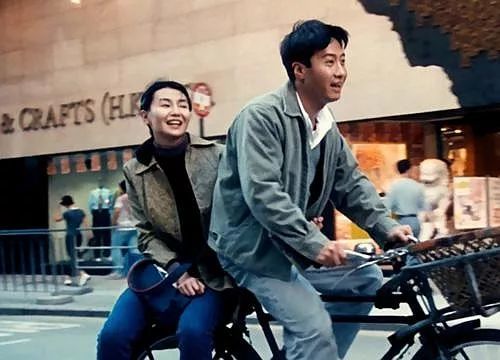
Sweet honey
But now, Hong Kong is no longer the Hong Kong in Sweet Honey. Li Xiaojun and Li Qiao think that through hard-working hands, they can create a world there.
On July 1, 1997, when Patten left Hong Kong with his family, Hong Kong’s 156-year history as a British colony came to an end and sovereignty officially returned to China.
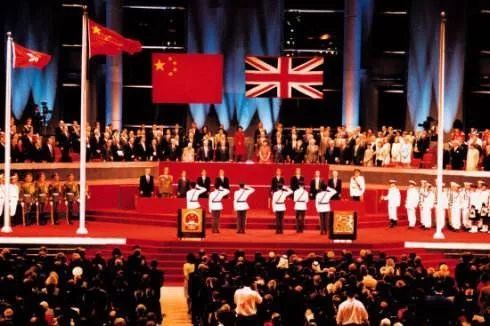
Different from the cheerful mood of mainland compatriots singing "Come soon in 1997, so I can go to Hong Kong", Hong Kong people only have the confusion of the British Hong Kong government and the speculation of the post-reunification era.
In 1997, "Spring Break Out" was showing in Hong Kong cinemas. At the end of that year, "Party A and Party B", the originator of the mainland New Year movie, also appeared in Beijing. A classic line in it was later borrowed, revised and interpreted countless times-1997 passed and I miss it very much.
In 1999, TVB broadcast a play called Genesis. The drama cost HK$ 150 million, which is regarded as an unprecedented masterpiece of Hong Kong drama.
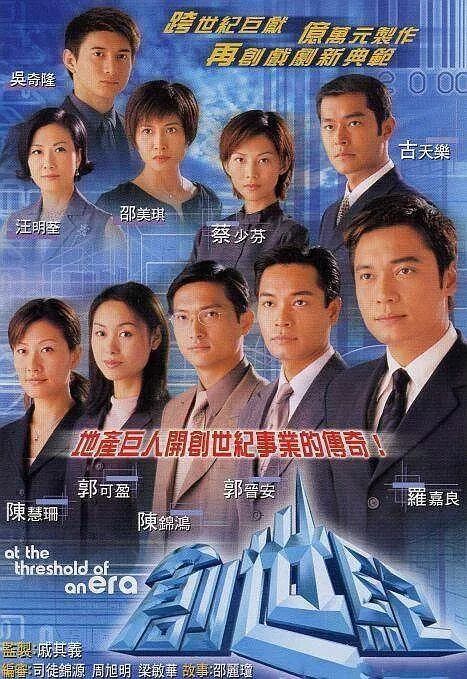
Genesis
At that time, many people thought that a brand-new era was coming.
Unfortunately, the story didn’t unfold as expected.
The tide of the times is surging. After the Millennium, Hong Kong was devastated by the financial hurricane, and the world of flowers and flowers began to feel nervous.
In the movie "Walking in Xun Mei", as a new immigrant mother in the last century, she still has a gorgeous imagination about Hong Kong, while her daughter feels nothing about her life in a materialistic society.
What is terrible is that this gap in consciousness between the two generations has now become a reality for many young people in Hong Kong.
Today, in this tiny place of Hong Kong, there are 7 million permanent residents. In "Ignorance in One Mind", it is said that the last thing here is space.
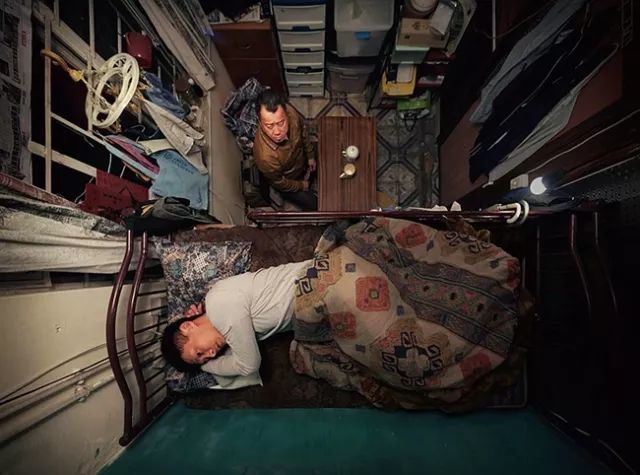
Ignorance in one thought
The urban economy is more and more developed, but the class differentiation is more and more serious; People are getting more and more crowded, but people are constantly alienated.
This city, known as the safest, richest and highest living standard in Asia, has an average of three suicides every day. High-rise buildings and narrow streets make it difficult for love in the buff’s love story to happen.
In the corner of the city, there are fewer and fewer places where you can find Hong Kong flavor, and they are replaced by high-end brand concentration camps.
In "The Thief of the Years", there are few old streets like Yongli Street that can still be preserved. The disappearance of cultural symbols makes the spiritual bond between people more fragile.
10
I believe that everyone in the Mainland who grew up watching Hong Kong films after 1980s and 1990s, like the son, was influenced by Hong Kong film and television and culture, and was full of yearning for the land separated by water and awe of their culture.
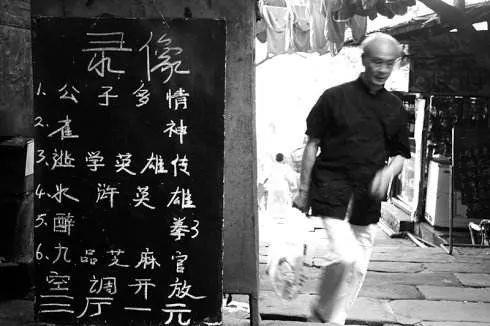
In the era when cinemas were not popular, almost all Hong Kong movies were shown in the video halls in the corner of the city. Tens of thousands of Hong Kong movies feed tens of thousands of DVD makers and pirated CD sellers.
With the progress of society, those CDs are thrown in the corner of memory by us.
In the 21st century, the number of film employees in Hong Kong has dropped sharply from 20,000 at its peak to less than 5,000, and the number of industrial talents is constantly losing.
In 2002, the film Infernal Affairs seemed to bring new hope to the already decaying Hong Kong films.
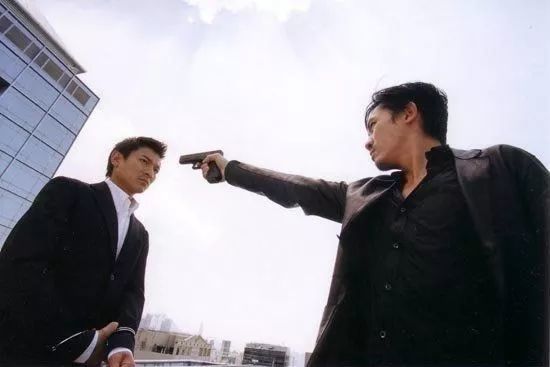
Infernal affairs
Infernal Affairs earned HK$ 55 million at the box office in Hong Kong, but it was not shown in the mainland. In the same year, a movie "Hero" starring a Hong Kong actor became the box office champion in mainland China, and finally earned $177 million in the world.
Entering the mainland market has become the only choice for Hong Kong films in trouble.
In 2003, the Mainland signed the CEPA agreement with Hong Kong, which came into effect in 2004, and Hong Kong artists went northward for gold.
After Infernal Affairs, Andy Lau filmed world without thieves in the north. The box office of the film was only HK$ 4.54 million in Hong Kong, but it was as high as HK$ 120 million in mainland China.
Since then, the films co-produced by Hong Kong and the Mainland have taken on a new name. In order to conform to the mainland system, many Hong Kong films going north have to make compromises.
No matter how we avoid it, we can’t ignore the death of the concept of Hong Kong film.
In recent years, despite the support of companies such as Huanya, Huanyu and Emperor, and the unremitting efforts of filmmakers such as Ceng Zhiwei, Chen Kexin and Du Qifeng, as well as the rise of new directors such as Peng Haoxiang and Weng Ziguang, people still have to sigh that that golden age has already vanished and the stars are dim.
Now, after Teresa Mo was sealed, it has been 40 years since Leslie Cheung expressed his love to her; Louis Koo was crowned emperor, but Du Qifeng said that he was the last Hong Kong star.
Carina Lau also sighed, it seems that it has been us for so many years. When will the new couple come out?
There are new people, such as the teenager Liu Jianming in Infernal Affairs, and the dancer Liu Piao Piao in king of comedy. They were once considered as the future of Hong Kong entertainment industry.
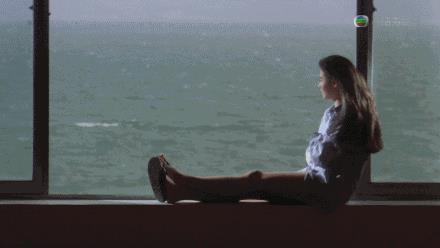
King of comedy.
However, "Yanzhaomen" changed their fate.
Twelve years after Carina Lau’s kidnapping, Hong Kong’s Oriental Weekly published a nude photo of Liu, and Anita Mui led nearly 1,000 entertainers and film workers to take to the streets to protest and March with banners, forcing Yang Shoucheng to apologize publicly and announced that the Oriental Weekly would be closed indefinitely.
However, in 2008, Edison Chen hastily apologized, and Gillian cried and said that it was silly and naive. The media dragged Cecilia Cheung, who was already standing on the roof, down, and no one stood up for them, and no one marched and protested, because Youth had passed away.
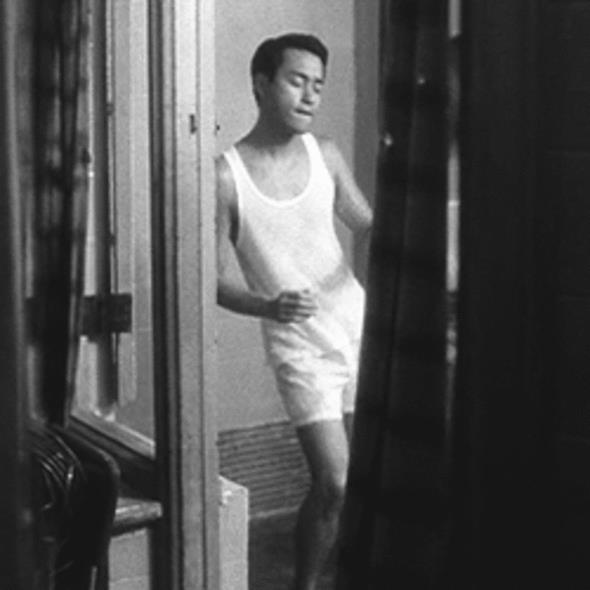
Days of Being Wild
In "Art Life", Wong Kar-wai watched Leslie Cheung’s solo dance in "The Story of Teddy Boy" and quietly shed a tear in sunglasses. I don’t know if he was remembering the lonely Xu Zi or the lost time.
Say goodbye to that classic era.
I also cherish my youth.